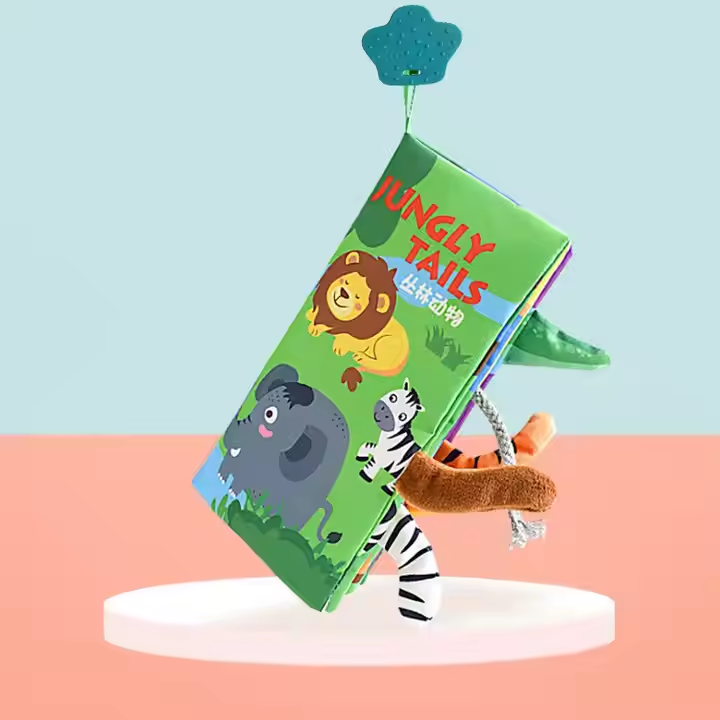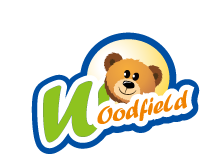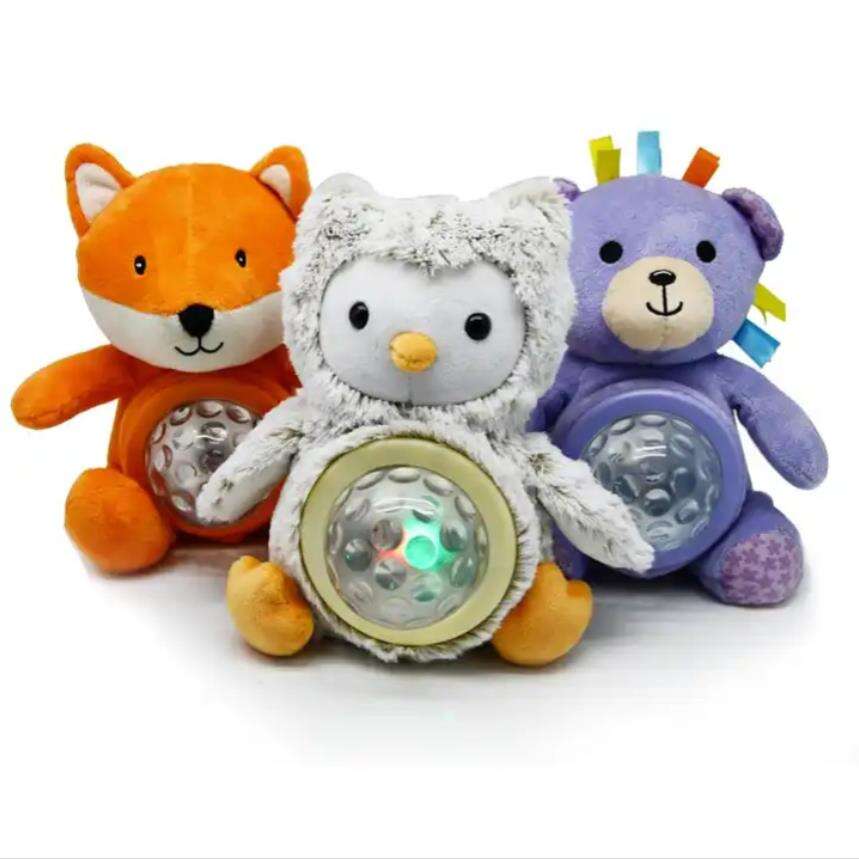How Educational Toys Enhance Cognitive Skills in Young Children
Key Cognitive Skills Enhanced by Educational Toys
Problem-Solving Through Interactive Play
Educational toys significantly boost children's problem-solving skills by encouraging them to think critically through play challenges. These toys present scenarios requiring real-time decision-making, enhancing cognitive flexibility—a crucial component of effective problem-solving. For instance, games that require children to navigate mazes or complete puzzles can improve their ability to analyze and strategize. According to research, 70% of parents observe that their children develop improved problem-solving skills through the use of educational toys.
Memory Development with Pattern-Based Activities
Pattern-based activities offer substantial benefits in enhancing memory development in children. These activities, such as matching games, demand that children recognize and recall sequences, which can significantly improve short-term memory. Engaging children in repetitive, pattern-focused play fosters memory retention, reinforcing cognitive connections as they mature. Studies have shown that children using pattern-based educational toys exhibit a 25% improvement in their memory recall abilities, underscoring the effectiveness of these activities in cognitive development.
Language Acquisition via Sensory Stimulation
Sensory stimulation through educational toys plays a pivotal role in developing language skills in children. By exposing youngsters to various textures, sounds, and visuals, these toys help expand vocabulary and improve language comprehension. Toys incorporating interactive speech features can notably aid in language pronunciation and understanding. Language development experts indicate that children engaging with sensory-stimulating toys can learn up to 50 new words monthly, highlighting their importance in effective language acquisition.
Fine Motor Skill Refinement
Enhancing fine motor skills is another critical area where educational toys excel. Activities involving toys that require stacking blocks or manipulating parts help develop hand-eye coordination, essential for fine motor skill refinement. These toys encourage children to grasp, pull, or push, aiding in the development of hand muscles and dexterity. Child development experts recommend engaging children in activities that enhance fine motor skills for at least 30 minutes each day to support healthy motor development.
Types of Educational Toys That Boost Learning
Building Blocks for Spatial Reasoning
Building blocks are invaluable tools for nurturing spatial reasoning and creative thinking in children. These toys allow youngsters to explore spatial relationships by constructing and deconstructing various shapes and structures. This not only enhances their ability to understand geometry but also provides foundational skills that help in solving complex problems in real-world scenarios. Research has indicated that children who frequently engage with building blocks experience up to a 36% increase in spatial reasoning skills, which can significantly benefit their cognitive development.
STEM Kits for Logical Thinking
STEM kits serve as engaging educational tools, introducing children to the core concepts of science, technology, engineering, and mathematics through interactive experiments. These hands-on kits help cultivate logical reasoning, which is crucial as children progress in their educational journey and begin to tackle more complex subjects. Educational studies support that children involved in STEM activities tend to perform 20% better on standardized tests in these subjects, underscoring the practical benefits of these kits.
Plush Toys for Emotional Intelligence
Plush toys, notably weighted stuffed animals, play an essential role in promoting emotional intelligence by acting as comfort objects and companions to children. Interacting with these plush toys allows children to express and explore their emotions safely, thereby enhancing their ability to empathize and communicate with others. Research in child psychology suggests that emotionally intelligent children are 25% more likely to thrive in social settings, evidencing the value of emotional bonding through plush toys.
Interactive Cloth Books for Multisensory Engagement
Interactive cloth books present tactile experiences that significantly enhance sensory engagement, which is crucial for early cognitive development. Through exploration, children encounter different textures which encourage curiosity and help develop impulse control. Experts advocate for such multisensory engagement as it can increase retention rates by up to 65%, enabling children to process information more effectively as they grow.
Animal Tail Cloth Book: A Case Study in Early Learning
Tactile Exploration & Safe Material Design
Animal tail cloth books are a prime example of combining safety with educational value, crafted specifically for infants and toddlers. These books utilize soft, non-toxic materials that invite tactile exploration. This is particularly crucial during the early stages of sensory development in children, where touch is a primary learning method. Notably, compliance with rigorous safety standards for children's toys means these books use materials free from harmful chemicals, allowing them to be safely mouthed and chewed by young ones. This ensures that the child is not only engaged but also protected during play.

Age-Appropriate Sensory Features (0-3 Years)
Incorporating features such as varied textures and crinkle sounds, animal tail cloth books are designed to meet the sensory needs of infants and toddlers aged 0-3 years. Such elements are essential in stimulating curiosity and maintaining a child’s engagement, fostering concentration and focus. Early childhood experts advocate for these sensory-rich materials, emphasizing their role in promoting cognitive and sensory development during this pivotal growth phase. By addressing the specific developmental stages of young children, these books offer a playful yet educational experience that encourages early learning.
Durability for Repeated Skill-Building Use
The durability of the animal tail cloth books ensures they withstand the rigors of repetitive use, a crucial aspect of early childhood learning. The ability to repeatedly engage with a familiar item enhances memory retention and problem-solving abilities in young children. Constructed from washable materials, these books can endure the demands of both play and everyday use. Studies indicate that such repetitive interaction is beneficial, reinforcing learned skills and helping solidify cognitive and emotional development. By offering sturdy and long-lasting products, these cloth books provide continuous learning opportunities without wearing out prematurely.
Long-Term Benefits of Cognitive-Focused Play
Academic Readiness Through Play-Based Learning
Cognitive-focused play is crucial in equipping children with foundational skills essential for their academic journey. These play activities enhance readiness for school, bridging the gap between play and academic achievement through the use of educational toys. Research demonstrates that engagement in play-based learning leads to a 30% improvement in skills necessary for school readiness, such as math and literacy. Experts strongly advocate for the inclusion of educational toys in early childhood environments to effectively align play with academic success objectives.
Enhanced Creativity and Adaptability
Educational toys that encourage cognitive play significantly foster creativity and enable children to explore new ideas while adapting to different situations. Creative thinking nurtured through play is instrumental in developing better problem-solving and adaptability skills across various life scenarios. Research has shown that children who regularly engage in creative play display enhanced adaptability not only in academic settings but also in social situations, underscoring the long-term benefits of imaginative play.
Foundation for Social Interaction Skills
Cognitive-focused play is instrumental in developing cooperation, sharing, and communication skills that are essential for social interactions. Educational toys designed for group play can promote these essential social skills, contributing to successful peer relationships. Studies have revealed that children who engage in cooperative play demonstrate a 40% increase in social skills development, indicating the profound impact toys can have on a child's ability to interact socially throughout their lives.
Recommended Products
Hot News
-
Selecting the Right Educational Toys for Different Age Groups
2024-11-08
-
Materials Used in the Production of Stuffed Animals
2024-11-04
-
Chinese Plush Toy Factories Lead the Global Market with Innovation and Quality
2024-01-23
-
How Plush Toys Can Boost Your Mental Health and Well-Being
2024-01-23
-
Plush Toys Factory Industry Trends: A Growing Market with Challenges and Opportunities
2024-01-23
-
Plush Toys Market Demand on the Rise
2024-01-23
-
Woodfield Website Online
2024-01-22

 EN
EN
 AR
AR
 BG
BG
 HR
HR
 DA
DA
 NL
NL
 FI
FI
 FR
FR
 DE
DE
 EL
EL
 IT
IT
 JA
JA
 KO
KO
 NO
NO
 PT
PT
 RO
RO
 RU
RU
 ES
ES
 SV
SV
 TL
TL
 IW
IW
 ID
ID
 SR
SR
 UK
UK
 HU
HU
 MT
MT
 TH
TH
 TR
TR
 FA
FA
 MS
MS
 GA
GA
 IS
IS
 EU
EU
 BN
BN
 LO
LO
 LA
LA
 SO
SO
 KK
KK

